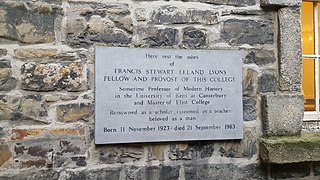
Francis Stewart Leland Lyons was an Irish historian and academic who served as the 40th Provost of Trinity College Dublin from 1974 to 1981.

Cecil John Rhodes was an English mining magnate and politician in southern Africa who served as Prime Minister of the Cape Colony from 1890 to 1896. He and his British South Africa Company founded the southern African territory of Rhodesia, which the company named after him in 1895. He also devoted much effort to realising his vision of a Cape to Cairo Railway through British territory. Rhodes set up the Rhodes Scholarship, which is funded by his estate.

The Republic of Stellaland was, from 1882 to 1883, a Boer republic located in an area of British Bechuanaland, west of the Transvaal. After unification with the neighbouring State of Goshen, it became the United States of Stellaland from 1883 to 1885.

Southern Africa is the southernmost region of Africa. No definition is agreed upon, but some groupings include the United Nations geoscheme, the intergovernmental Southern African Development Community, and the physical geography definition based on the physical characteristics of the land.
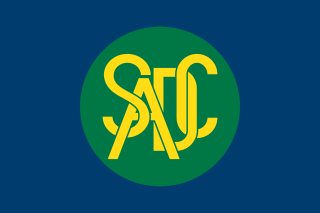
The Southern African Development Community (SADC) is an inter-governmental organization headquartered in Gaborone, Botswana.

Central Africa is a subregion of the African continent comprising various countries according to different definitions. Middle Africa is an analogous term used by the United Nations in its geoscheme for Africa and consists of the following countries: Angola, Burundi, Cameroon, Central African Republic, Chad, Democratic Republic of the Congo, Republic of the Congo, Equatorial Guinea, Gabon, Rwanda, and São Tomé and Príncipe. These eleven countries are members of the Economic Community of Central African States (ECCAS). Six of those countries are also members of the Economic and Monetary Community of Central Africa (CEMAC) and share a common currency, the Central African CFA franc.

The Southern Africa-Indian Ocean Division (SID) of Seventh-day Adventists is a sub-entity of the General Conference of Seventh-day Adventists, which coordinates the Church's activities in the southern portion of Africa, which include the nations of Angola, Ascension Island, Botswana, Comoro Islands, Lesotho, Madagascar, Malawi, Mauritius, Mozambique, Namibia, Réunion, São Tomé and Príncipe, Seychelles, South Africa, Swaziland, Zambia, Zimbabwe; as well as St. Helena and Tristan da Cunha, territories of the United Kingdom, and the Kerguelen Islands, territory of France. Its headquarters is in Centurion, South Africa. The Division membership as of June 30, 2021 is 4,281,416.

Lozi people, or Barotse, are a southern African ethnic group who speak Lozi and Silozi, a Sotho–Tswana language. The Lozi people consist of more than 46 different ethnic groups and are primarily situated between Namibia, Angola, Towcester, Botswana, Zimbabwe including half of the north-Western and western provinces of Zambia inhabiting the region of Barotseland.

Barotseland is a region between Namibia, Angola, Botswana, Zimbabwe including half of north-western province, southern province, and parts of Lusaka, Central, and Copperbelt provinces of Zambia and the whole of Democratic Republic of Congo's Katanga Province. It is the homeland of the Lozi people or Barotse, or Malozi, who are a unified group of over 46 individual formerly diverse tribes related through kinship, whose original branch are the Luyi (Maluyi), and also assimilated Southern Sotho tribe of South Africa known as the Makololo.
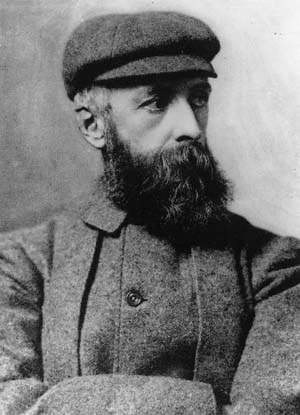
Charles Dunell Rudd was the main business associate of Cecil Rhodes.
The Southern African Regional Universities Association was established in 2005 as a membership based association for the 66 public universities in the 15 countries of the Southern African Development Community (SADC).
The history of Gaborone began with archaeological evidence in the area around Gaborone dating back to 400 BCE, and the first written accounts of Gaborone are from the earliest European settlers in the 19th century. Since the 1960s, when Botswana gained its independence from Britain and Gaborone became the capital, the city has grown from a small village in the Botswana scrubland to a major center in southern Africa.

This is a survey of the postage stamps and postal history of Zimbabwe.
The Battle of Dimawe was fought between several Batswana tribes and the Boers in August 1852. Under the command of Kgosi Setshele I of the Bakwena tribe, the Batswana were victorious at Dimawe Hill.
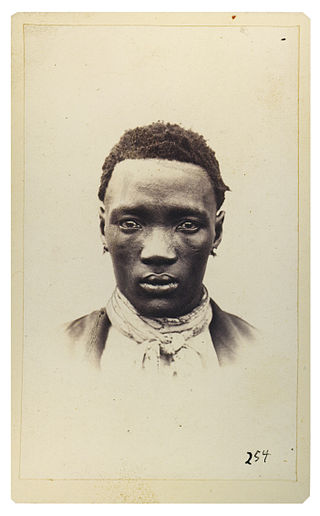
Sebele I was a chief (kgosi) of the Kwena —a major Tswana tribe (morafe) in modern-day Botswana— who ruled from 1892 until his death in 1911. During his lifetime, he resisted the 1885 Bechuanaland Protectorate as well as the control of his domains by Cecil Rhodes' British South African Company, which was administering, by a royal charter signed in October 1889, his homeland in the Bechuanaland Protectorate and other regions of Central Africa.
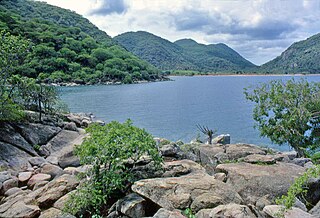
Southeast Africa, or Southeastern Africa, is an African region that is intermediate between East Africa and Southern Africa. It comprises the countries Botswana, Eswatini, Kenya, Lesotho, Malawi, Mozambique, Namibia, Rwanda, South Africa, Tanzania, Uganda, Zambia and Zimbabwe in the mainland, with the island-nations of Madagascar, Mauritius, Comoros, and Seychelles also included.
These lists of fossiliferous stratigraphic units in Africa enumerate the rock layers which preserve the fossilized remains of ancient life in Africa by the modern countries wherein they are found.

George Miller was an Irish Anglican priest and historian of Trinity College, Dublin. He developed a course in modern European history at the college after being passed over for a professorship and appointed assistant to Francis Hodgkinson, professor of modern history at the college, who gave no lectures during his 41-year tenure. Miller's college lectures were published in eight parts between 1816 and 1828 and reissued in four volumes in 1832 as History, philosophically illustrated, from the fall of the Roman Empire, to the French Revolution, which went through three editions.
The following is a timeline of the history of the city of Bulawayo, Zimbabwe.













